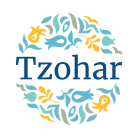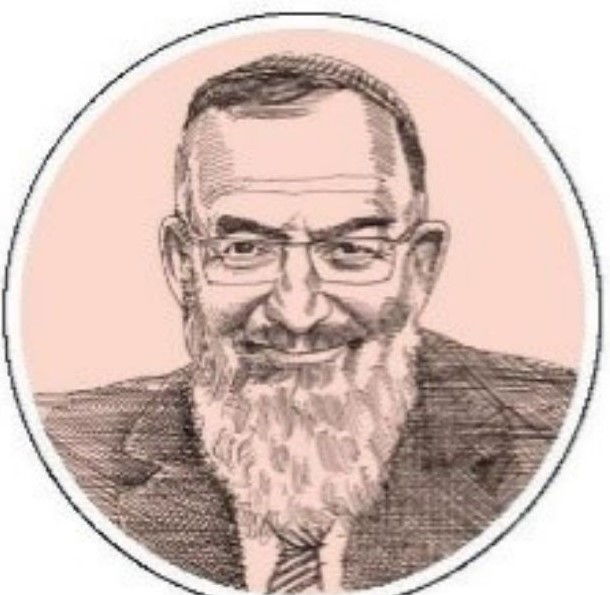One of the more fascinating findings that emerged from a recent public opinion survey on issues of religion and state and published in Globes was the apparent contradictory responses offered to very similar lines of questioning.
For example, when asked which values were more important to them, democratic values or Jewish values, the responses were almost evenly split (47 percent favoring democratic values and 44 percent Jewish values.) Yet, when those same people were surveyed regarding their impressions on the value of the Jewish identity of the state of Israel, only a small percentage of some 20 percent answered that they felt there was little importance to the national identity as a Jewish state.
On the other hand, the vast majority of people surveyed, both religious and secular, indicated that they favored a country that honored Jewish history and tradition, but only four percent said they would want to see the country become a “medinat halacha” (a government governed exclusively by Jewish law.)
Similar trends could be seen when the survey related to questions over how Shabbat should be observed in the public sphere. Only 11 percent support a position where Shabbat should be completely viewed as just another day of the week. This is to say that the overwhelming percentage of the surveyed public believe that Shabbat should be viewed with some degree of importance and sanctity. At the same time, a minority of 23 percent would want a complete ban on public transport on Shabbat, and most Israelis support public transport operating even alongside some form of limitations or restrictions on the format of operation.
Most Jews are truly happy with their Jewish identities
It is clear that when we draft survey questions in a way that requires the respondent to present clear-cut answers, it quickly becomes evident how the public narrative on key issues pushes our society to opposing extremes. But when we make the effort to address the issues through more nuanced and sensitive lenses, the conclusions reached reflect a more complex – and similarly nuanced- state of affairs.
While there may be certain occasions where glossing over the deep divisions in our society could be of value, the reality of these and other public opinion surveys on key issues highlight two deeper truths existent within most Israeli Jews. The first is that most Jews are truly happy with their Jewish identities. They are proud to be a part of a historic tradition and have no desire to flee that identity. But at the very same time, the vast majority of Israelis have no desire to see that identity forced upon them either through legislation or any other means that robs them of a sense of free choice and personal liberty.
These survey findings demand serious examination and understanding by our national leaders if they have a sincere desire to design new and impactful formulas for addressing the growing chasm between religious and secular elements of our society. As an example, one can’t create blanket solutions on issues such as public transport on Shabbat, and what is needed in Bnei Brak has little relevance to Kfar Saba. Analysis of need and consumption of such services must be looked at differently for different locales which cater to demographics with differing levels of halachic observance.
But admittedly it will be easier to find room for compromise in those more “practical” areas of controversy. Where it becomes far more problematic is when we turn to questions of “What makes us a nation?” Here most respondents base their questions on our national past. We have been linked as a people by a common history, destiny and culture. The troubling conclusion of that answer is that for most Israelis today, there is very little which unites all of us as one people with a common identity.
That conclusion assumes that we have little social unity, nor common values that are what bond us together as a nation. It is simply that we have a common destiny. In that regard, one of the primary uniting factors remains that our enemies seek our destruction regardless of whether we get along or not (a reality which is revealed in almost all surveys that show that no matter what social tensions surround us, people will always remain most concerned with security threats.)
It’s not easy to deny the data and certainly arguing with emotional responses is never easy. But no healthy society can base its existence on its past without creating a more hope-filled roadmap for its common future. Similarly, using our security challenges as our unifying power is also not productive. Many would say that they could just pick up and leave Israel and sooner or later we would be assimilated – as has been proven the case in many Western countries.
So if we are to identify the values that will enable us to become a strong Jewish people and Jewish state, we need to re-evaluate the aspects of our Jewish identity where there is true consensus among the majority of Jews – while also protecting the diverse traditions and practices that exist within the greater Jewish family. This is certainly a long-term process that involves all aspects of Jewish life; education, culture, law and other areas, where we will need to carefully find the areas of consensus while honestly confronting, and learning to live alongside areas of tension that will undoubtably prevail.
A potential catalyst for encouraging much-needed dialogue
As troubling as the current social crisis in Israel is, it must also be recognized as a potential catalyst for encouraging much-needed dialogue. Beyond questions over what will happen with the judicial reform – which we all believe will be resolved one way or the other – there are far more fundamental questions which these tensions are uncovering that speak to the very heart of who we are as a people.
Indeed, there are a plethora of issues and challenges that demand a complete re-evaluation if we are to forge that path towards a better and more united national future. But if there is any lesson that we can take from the past few months of ongoing social tension, it is that reaching widespread consensus on those issues requires deep thought and involvement from all aspects of society. Certainly no unilateral solutions will lead to universal acceptance and political approaches advanced by powerbrokers with political motives are highly unlikely to pave the path that our people so need. The solution demands that we convene a council of social leaders who will invest the countless days and nights necessary to redraft the vision for what it will mean for us to thrive as a nation and a people.
That new vision will also demand that we re-evaluate how we can thrive as a united people despite the existence of diverse tribes within our midst. As ambitious a path as that might sound, actively embracing this approach in a way that recognizes the true needs of our people is the critical task and challenge of our modern Jewish community.
Yet when we succeed, we will create a Jewish world better equipped to address our enemies, both within and without, and enable an existence that thrives both on diversity and the belief in a common vision and identity.
This article was originally published in Hebrew in Globes and can be read at https://www.globes.co.il/news/article.aspx?did=1001445166


